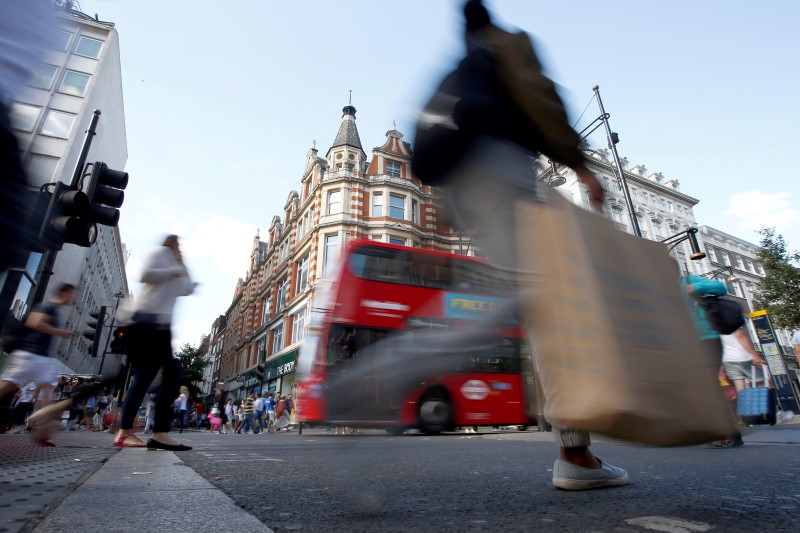Gold prices set for weekly gains on dovish Fed outlook; silver near record high
By William Schomberg and David Milliken
LONDON (Reuters) - Britain's economy picked up some steam in April after slowing in early 2017, a closely-watched survey suggested on Thursday, welcome news for Prime Minister Theresa May ahead of a national election in just over a month's time.
But separate figures from the Bank of England showed caution on the part of house-buyers in March, adding to signs of a slowdown in the housing market as rising inflation squeezes consumers.
The Markit/CIPS Purchasing Managers' Index (PMI) of Britain's giant services industry unexpectedly rose to a four-month high of 55.8 in April, above all the forecasts in a Reuters poll of economists.
The reading was the second strongest since mid-2015, a good backdrop for May and her Conservative Party who are trying to convince voters that the opposition Labour Party cannot be trusted to run the economy after the June 8 election.
At the same time, the survey included some warning signs for the economy, which has so far coped with the shock of last June's Brexit vote much better than expected by the Bank of England and private-sector economists before the referendum.
Prices charged by service firms rose at the fastest pace since July 2008 and company executives reined in their optimism about the year ahead for a third month in a row.
Taken with PMIs for manufacturing and construction published this week, the April survey suggested the economy was growing at a quarterly pace of 0.6 percent at the start of the second quarter, Markit said, double the pace of the first quarter.
IHS Markit economist Chris Williamson said that kind of momentum was unlikely to last as households increasingly felt the pinch from rising inflation.
"We expect consumer spending to slacken in coming months, with the April survey highlighting continued weakness in sectors such as hotels, restaurants and other household-facing businesses," Williamson said.
However, he said growth of at least 0.4 percent growth was possible for the second quarter as a whole.
The BoE data painted a mixed picture of how consumers are coping with the rise in inflation triggered by the fall in the value of the pound since the Brexit vote and by rising global oil prices.
Consumer credit in the 12 months to March grew by 10.2 percent, the weakest increase since July of last year. But on the month it picked up a bit up of speed to rise by 1.624 billion pounds, more than the increase of 1.3 billion pounds expected by analysts in a Reuters poll.
British clothing retailer Next lowered its full-year profit guidance on Thursday after cash-strapped shoppers stayed away from its stores in the first quarter.
The Bank of England's top policymakers will pay close attention to Thursday's readings of the economy as they prepare for next week's monetary policy announcement.
The BoE is widely expected to keep interest rates at their record low throughout this year and possibly until 2019 as it steers the British economy through the uncertainty linked to the exit from the European Union.
One rate-setter voted last month for a rate increase, however, and others said they might follow suit soon if there were signs that economy was maintaining its momentum of 2016.
